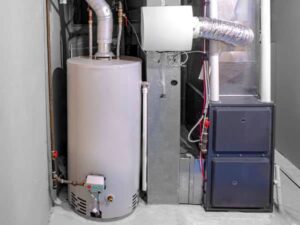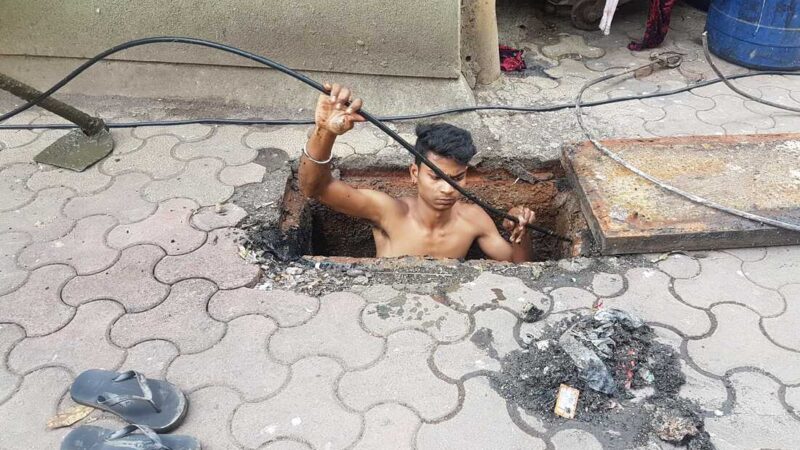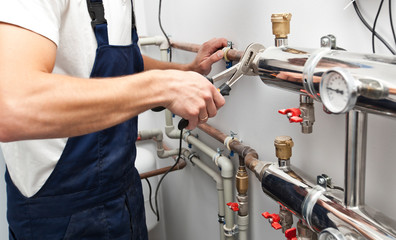Types of Water Heaters
Showering and washing clothes in hot water is one of the great conveniences of modern life. Providing that warm, clean water is a job for your home’s Denver Water Heaters.
Traditional units feature insulated tanks that hold 20 to 80 gallons of water and can operate on electricity, natural gas, propane, or fuel oil. These systems are a good choice for many households.
Tank heaters use an insulated tank to heat and store water until it’s needed, with a pipe emerging from the top to deliver hot water. These types of heaters typically run on either natural gas or electricity, and they come in a variety of sizes to meet different household needs. These heaters also have a safety valve that opens when the temperature or pressure exceeds preset limits.
The largest type of tank water heaters hold up to 80 gallons, which can be sufficient for households with up to four people. Unlike point-of-use heaters, which heat water as it’s used, these units have a larger capacity and may be able to support simultaneous usage (such as running the dishwasher while someone showers).
Smaller, less powerful tank heaters can hold up to 40 gallons and are ideal for single-person households. They have lower energy consumption and operate on a more basic system that requires less maintenance. They are usually powered by electricity and feature a built-in thermostat that regulates the water temperature.
Regardless of size, tank heaters can require regular maintenance to keep them in good condition. They should be inspected at least twice per year to ensure that the tank is free of debris and that the heating element is in good working order. In addition, these heaters can be susceptible to leaks and sediment buildup.
If you notice that your tank heaters aren’t producing heat, it’s time to replace them. You can test the heaters by switching them on and observing whether they begin to warm up. If they don’t, it’s likely that the heater is no longer capable of drawing power to warm the liquid within the tank.
Screw Plug Immersion Heaters – These electric heaters are designed to be screwed into a threaded pipe fitting in the side of a storage tank or vessel. These heaters are available with a wide range of temperature controls and protection rated to IP54 or higher, depending on the model.
Point-of-Use Heaters
A point-of-use heater is a small water heater that is installed close to the fixture that will be using it, such as in your kitchen or bathroom. They are often used to cut down on energy usage by heating the water right where it is needed rather than bringing in hot water from a central system and then heating it again at the fixture. They can be either tank or tankless, and they are available in a variety of designs based on the application, such as under-sink models or wall-mounted units.
A big reason for the long wait after you turn on your shower or sink is that the hot water has to travel a good distance from your home’s water heater. This means the water has a chance to cool in the pipe, so it takes longer for it to come through when you open your faucet. A POS water heater is a great way to cut down on that waiting time and it can be a very affordable solution for many homes.
Like whole-house heaters, a POU unit can be electric or gas and it can have a tank or it can be tankless. It’s important to understand the different types of units and what your needs are before you decide to add one or more. You can also discuss your options with a licensed plumber to ensure you are getting the best solution for your Montgomery home and that it’s properly installed.
Whether you choose a tank-type or tankless model, both of these types of heaters will require regular maintenance to ensure they work optimally. This is something you can do yourself or you can leave it to a professional plumber, but either way, a POU unit will operate most efficiently and have the longest lifespan if it receives routine maintenance.
There are several benefits to adding a point-of-use water heater to your Montgomery home. Not only will it eliminate that waiting time for hot water, but you can also make significant savings on your monthly utility bills by reducing the amount of energy used to heat the water in your home.
Hybrid Heaters
Hybrid water heaters, also known as heat pump water heaters, are revolutionizing the way we hot our homes. By using a process similar to that of refrigerators and air conditioners, but in reverse, hybrid water heaters are able to cut energy costs by up to 50%.
These units work by combining two electric heating methods: heat pump technology and traditional electric resistance elements. They use the heat pump to extract energy from the surrounding air, and they only engage the electric heating element during periods of peak demand or when the tank reaches its max fill level. This allows you to never run out of hot water and makes them a great choice for households with frequent heavy users.
The unit’s efficiency varies depending on the heating mode, with the highest efficiency being achieved when it operates in its heat pump mode. During this time, the unit only consumes electrical power to keep the water at your desired temperature. However, during times of peak demand or when the system reaches its max fill level, it uses the conventional electric heating elements to keep up with your household’s demands.
Because of this, hybrid water heaters can cost more upfront than standard electric tank models. However, they will typically pay for their increased investment within the first couple of years and then continue to save homeowners money on their electricity bills year-round.
One of our favorite hybrid water heaters is the Rheem ProTerra. This model features a digital display that allows users to customize their operation and monitor levels. In addition, it has a vacation mode that utilizes the heat pump to save even more energy while you’re away from home.
The unit can be set to operate in low or high demand modes, and it is able to respond automatically to changing weather conditions. This means that on cold days, it will use the heat pump more to pull warm air from its immediate surroundings and heat the water inside the tank. On warmer days, it will use the gas burner less to avoid overheating.
Tankless Heaters
Unlike storage tank units, which hold water at a constant temperature, tankless heaters heat the water only when it’s needed. The unit’s sensors detect when a hot-water tap opens and signals the burner to fire. A sealed vent (11) through a roof or outside wall carries away the combustion gases, while a second vent (13) conveys fresh air to the heater.
These units are very efficient because they avoid the energy costs associated with maintaining a large tank full of hot water at all times. The systems also heat the water directly at the point of use, which is a more energy-efficient and environmentally friendly alternative to reheating cold water at a central heater before it arrives at your home’s plumbing fixtures.
Tankless systems can cost more upfront than tanks, but they may pay off in the long run with lower utility bills. Plus, they don’t take up a lot of space, which is helpful in tight quarters.
It’s important to size your new system carefully, and to install it properly. Your local plumbing and electrical experts can help you choose the right model for your family’s needs and your house. They can also help you make the necessary adjustments to your house’s plumbing and electrical system, including upgrading wiring or a circuit-breaker panel to accommodate a gas- or electric-powered unit.
The main drawback of a tankless heater is that it can take a while for the hot water to flow, especially when several people turn on showers or sinks at once. The system can also struggle to keep up if all the demand is for very hot water.
Unless your plumber tells you otherwise, consider signing up for an annual service contract that includes routine maintenance and a vinegar flush every 500 hours to prevent hard water deposits from clogging the unit’s heat exchanger. The company can also inspect your water and electrical systems to ensure they’re working properly. These services are worth the investment and can help you get the most from your tankless water heater.





